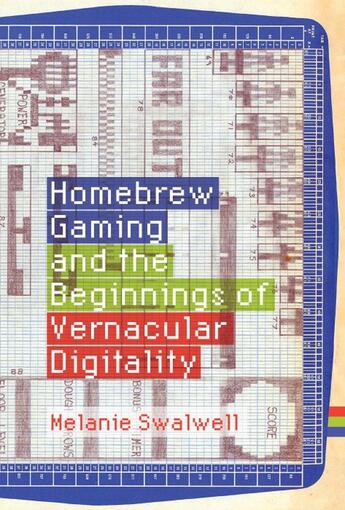-
Date de parution : 17/08/2021
-
Editeur :
Mit Press
-
EAN : 9780262044776
-
Série :
(-)
-
Support :
Papier
Résumé:
B>The overlooked history of an early appropriation of digital technology: the creation of games though coding and hardware hacking by microcomputer users./b>br>br>From the late 1970s through the mid-1980s, low-end microcomputers offered many users their first taste of computing. A major use of... Voir plus
B>The overlooked history of an early appropriation of digital technology: the creation of games though coding and hardware hacking by microcomputer users./b>br>br>From the late 1970s through the mid-1980s, low-end microcomputers offered many users their first taste of computing. A major use of these inexpensive 8-bit machines--including the TRS System 80s and the Sinclair, Atari, Microbee, and Commodore ranges--was the development of homebrew games. Users with often self-taught programming skills devised the graphics, sound, and coding for their self-created games. In this book, Melanie Swalwell offers a history of this era of homebrew game development, arguing that it constitutes a significant instance of the early appropriation of digital computing technology.br>br> Drawing on interviews and extensive archival research on homebrew creators in 1980s Australia and New Zealand, Swalwell explores the creation of games on microcomputers as a particular mode of everyday engagement with new technology. She discusses the public discourses surrounding microcomputers and programming by home coders; user practices; the development of game creators'' ideas, with the game Donut Dilemma as a case study; the widely practiced art of hardware hacking; and the influence of 8-bit aesthetics and gameplay on the contemporary game industry. With Homebrew Gaming and the Beginnings of Vernacular Digitality, Swalwell reclaims a lost chapter in video game history, connecting it to the rich cultural and media theory around everyday life and to critical perspectives on user-generated content.
Donner votre avis














